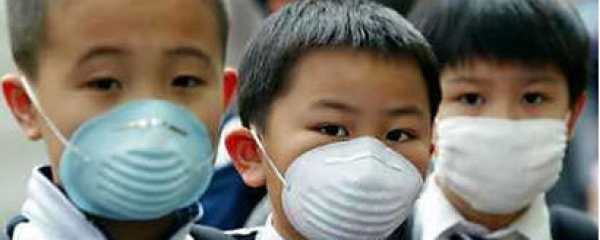
“One Life” by Kevin Brown
Fiction, LiteratureI hold it up, say, “Water,” in Cantonese, and take a sip, nearly gagging. The lady looks away and I spit something gritty out. It’s risky, I know. Drinking this, there’s all kinds of other diseases I could get. But like I said, I’m getting desperate.
Stepping off the ferry dock, I grab a cab and hop inside.
“Where you going?” the cab driver says in the rearview mirror.
“To my wife,” I tell him.
He says, “Where she at?”
“She’s dead,” I say, and he spins around in the seat, his mask deflating over his mouth as he breathes. “Gallant Garden Cemetery,” I tell him, and take another drink.
Cemeteries here, they’re different than in the States. Space is limited where population is not, so the dead are buried on a steep slope. Like their houses, they go up instead of out. Mei Lin said after six years, the bodies are dug up for the space to be reused. One afternoon, staring at her grandmother’s headstone, she told me, “If the family is wealthy, they can pay to have the skeletons cleaned and reburied in the same place.”
She sat beside the grave, above where she’d be buried in under a year and, squinting at the sun said, “If they can’t afford it, the remains are cremated.”
I step through the gates and already there are four or five fresh mounds of dirt. Probably SARS, taking someone else’s wife or husband. Mother or son. At one of the mounds, a lady is on her knees, her hands finger-to-finger, palm-to-palm and laced with Buddhist prayer beads, chanting, “Namo Amituo Fo,” over and over.
I walk to Mei Lin’s grave and sit down. White roses are spread out like a Chinese fan in front of the tombstone, and at the foot there are three incense sticks burned to the stem.
It’s the first time I’ve been here since the funeral.
I close my eyes tight and try to cry but can’t. Those things are gone now. This is just a rock and a patch of grass. Below that, a sunken mound of dirt crushing a box with nothing like my wife inside.
It’s not I’m moving on. I’m moving to.
“Namo Amituo Fo,” the lady behind me says.
I open my eyes and for a second, I see Mei Lin in front of me, like the day we saw her grandmother. She looks at me and, squinting her eyes in the wind, disappears.
My hands tremor and I slip the wedding ring off my pinky and hold it up. One life, one love, but all I need is one death. “I’m on my way,” I say, and pop the ring inside my mouth. Throwing my head back, I turn the Coke bottle up and swallow the ring with the rest of the seawater.
It’s getting late. The sky is the color of soaked newspaper and the buildings are blinking silhouettes. What’s left of the light is sliding behind the mountains like a drop of dishwater on a wine glass.
I ferry back across the harbor to Tsim Sha Tsui. It’s time to stop wasting time. To end this. Get through the window before the window shuts.
Leaving the shore, I place the envelope of money and picture in my shoe and walk toward Nathan Road. To where the dirty shit goes down and my odds go up.
To the Chungking Mansions.
Four towers of boarding houses, this place is seventeen stories high. Outside, air conditioners are knotted out of windows, and the façade is chipped and peeling like skin. Through the heavy glass doors, the first two floors are a maze of curry messes smelling like old chicken blood. Poorly lit sweat-shops and rundown sari stores.
Mei Lin said the Mansions are known for murderers and drug dealers. Prostitution and gambling. Illegal immigrants from India and Sri Lanka wander the labyrinth of halls and alleys. “And the poor,” she said, “they’re crammed together, sleeping in the alleys, begging for scraps of food like so many pigs.”
I step inside and the heat and sweat and food melts to my face. I walk through, letting my fingertips slide along the dingy surfaces. The graffiti covered walls and snot-smeared handrails. Shoving through the hordes of people, I pass a shop where thin, patchy chickens flutter inside small cages. A fabric store where a stained Yin and Yang blanket hangs from a wire. The sign: “16 HKD” stapled to it. Neon signs reflect in the main hall’s mirrored ceiling, where banners and Chinese lamps twist in a half-arc.
And I feel the hands reaching into my pockets, clawing at whatever I may be carrying.
Someone grabs the Coke bottle in my pocket, drops it, and pinches me.
Another hand, a ring gets caught and rips my pocket open. My travel pouch is clicked off and snatched away.
I keep my head down. If I take a knife to the guts, show’s over. Curtain closed. My wife, any hope of seeing her again is out the wrong window.
I step inside a bric-a-brac shop and in the corner, an old fortuneteller watches me cross the room. His hair white and ratty, he stands and follows me down an isle.
“Fortune?” he says. “Fortune today?”






















